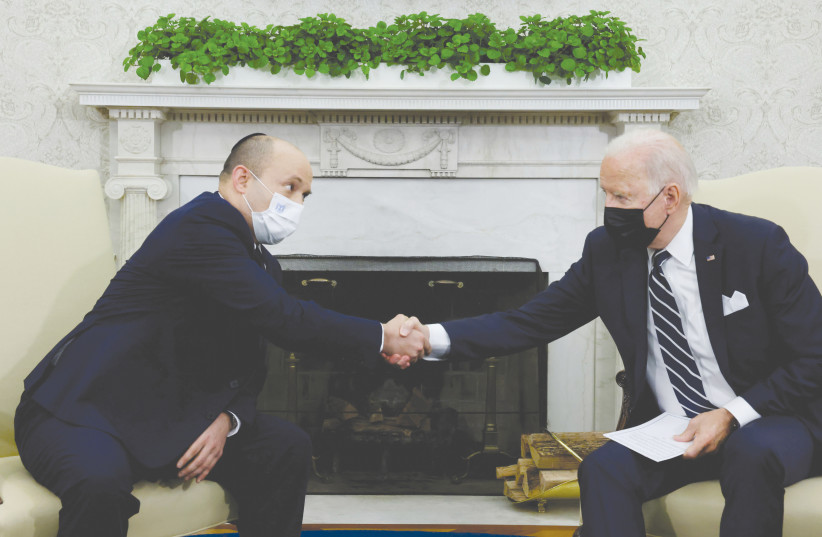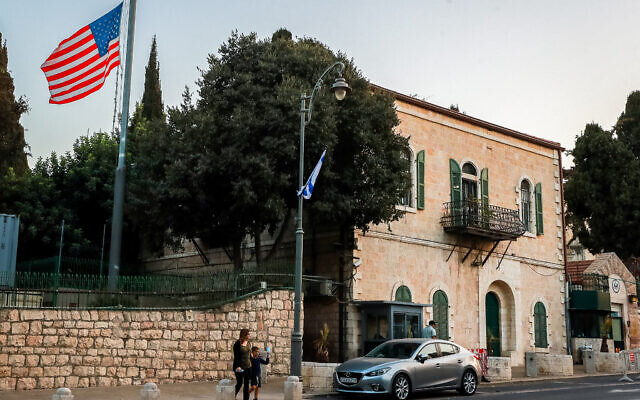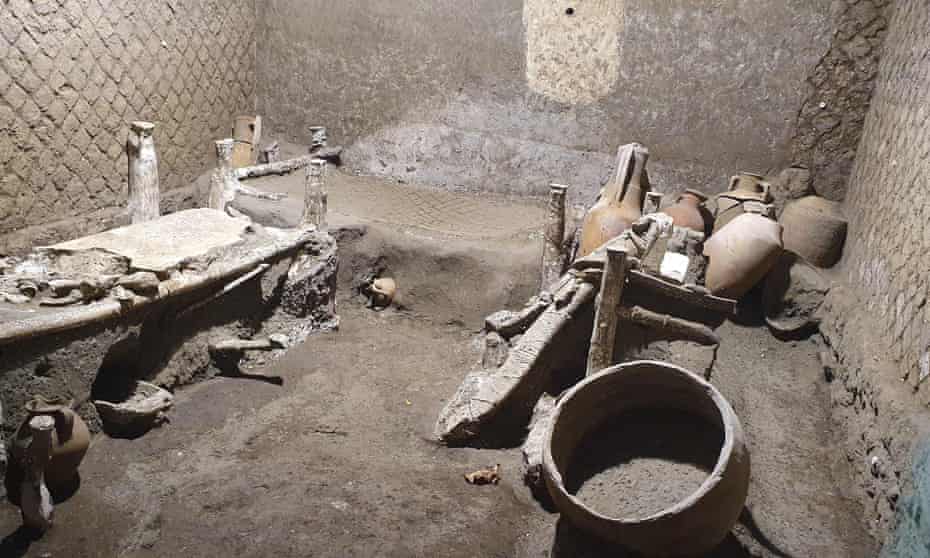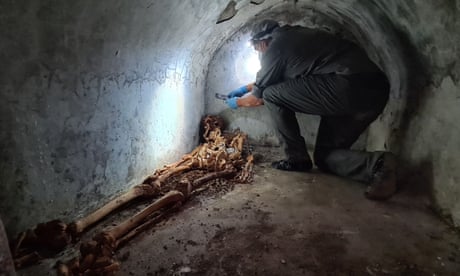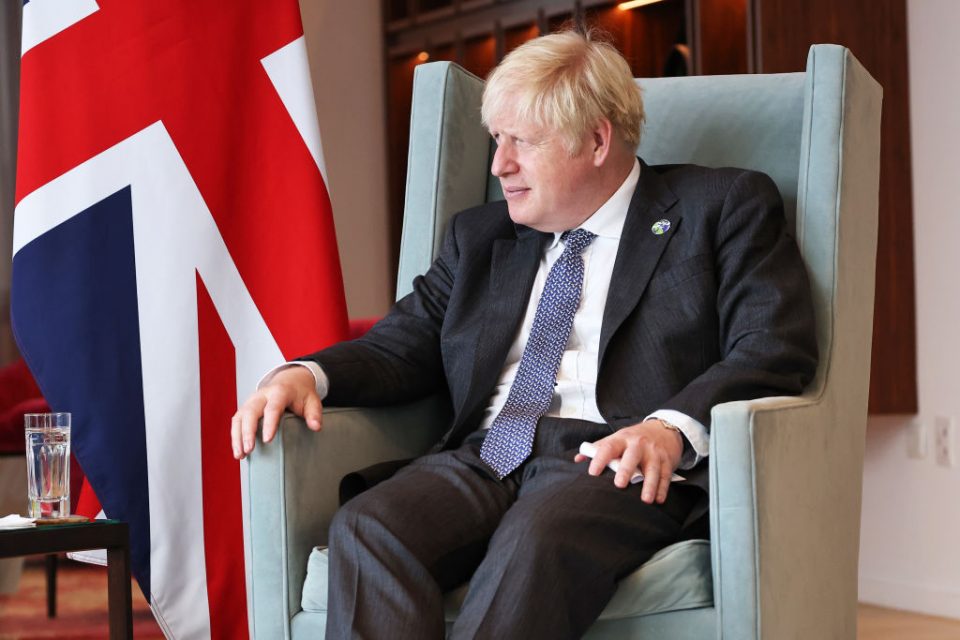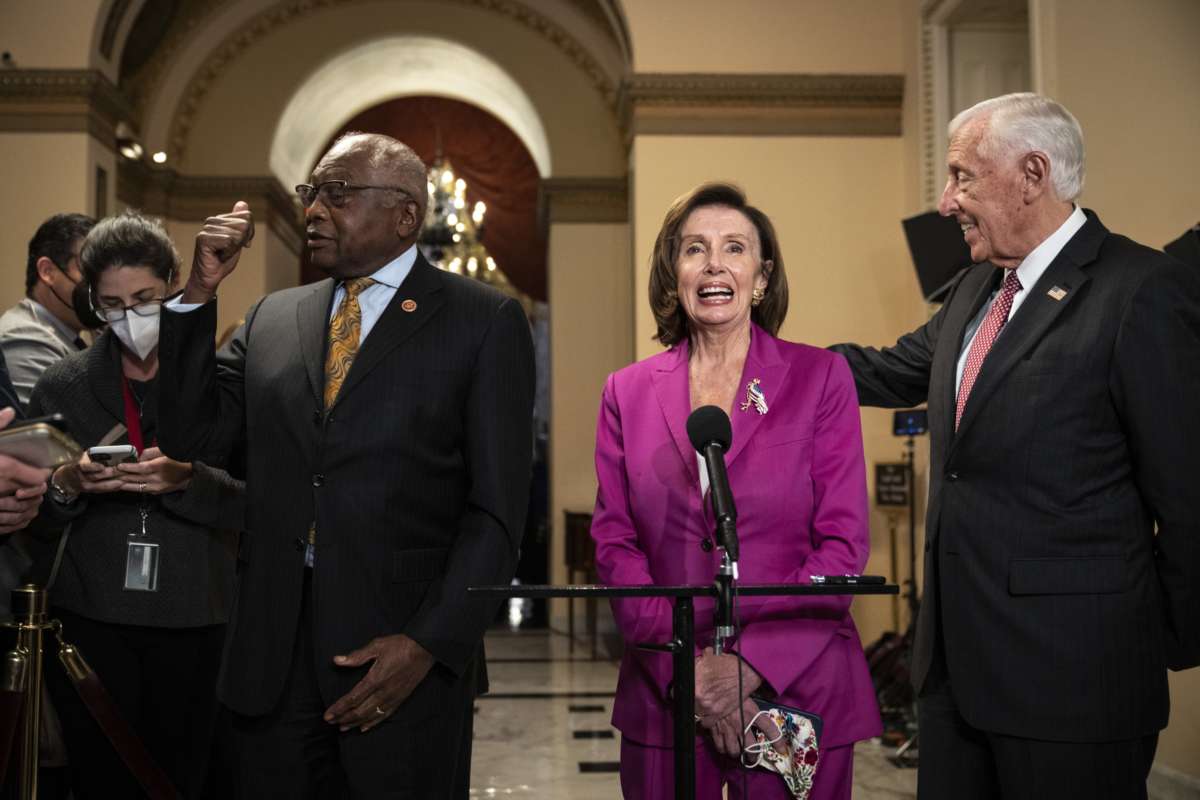
The U.S. House on Friday night passed a bipartisan physical infrastructure bill but didn’t bring the Build Back Better Act to the floor — sending just one half of President Joe Biden’s two-pronged economic agenda to the White House, with only a pledge that conservative House Democrats will vote for the party’s broader social infrastructure and climate package at a later date.
That wasn’t the plan on Friday morning. When the day started, Biden and House Speaker Nancy Pelosi (D-Calif.) said they wanted House Democrats to pass both parts of the president’s legislative agenda: the Build Back Better Act (BBB), which would invest $1.75 trillion over 10 years to strengthen climate action and the welfare state; and the Infrastructure Investment and Jobs Act, also known as the Bipartisan Infrastructure Framework (BIF), a fossil fuel-friendly proposal to upgrade the nation’s roads, bridges, and ports that was approved by the U.S. Senate in August.
Due to the intransigence of a few right-wing House Democrats who made last-minute demands for additional fiscal information that could take weeks to obtain, and the acquiescence of Pelosi and Biden, a planned floor vote on BBB was shelved and reduced to a “rule for consideration,” which was approved in a party-line vote of 221-213. Prior to that, BIF passed by a tally of 228-206, with 13 House Republicans joining most Democrats in supporting the measure.
Because it wasn’t accompanied by a real vote on BBB, six progressives — Reps. Jamaal Bowman (D-N.Y.), Cori Bush (D-Mo.), Alexandria Ocasio-Cortez (D-N.Y.), Ilhan Omar (D-Minn.), Ayanna Pressley (D-Mass.), and Rashida Tlaib (D-Mich.) — voted against BIF.
“Passing the infrastructure bill without passing the Build Back Better Act first,” Omar said in a statement, “risks leaving behind child care, paid leave, healthcare, climate action, housing, education, and a roadmap to citizenship.”
For months, progressives have stressed — and Democratic leaders had agreed — that keeping both pieces of legislation linked and passing them in tandem was key to securing Biden’s entire agenda. Holding a floor vote on BIF and a mere procedural action on BBB, progressives argued Friday, was a betrayal of the two-track strategy that opens the door for right-wing party members who are content with the passage of BIF to further weaken, or completely abandon, the already heavily gutted BBB.
“We’re proud of the Squad for being courageous and standing up for what’s right tonight,” Varshini Prakash, executive director of Sunrise Movement, said in a statement. “It’s bullshit that President Biden and Speaker Pelosi rammed through a bill written by a bunch of corporations but feel fine to hold off on passing Biden’s own agenda, a popular bill that would actually combat climate change and help working people.”
Mary Small, national advocacy director at the Indivisible Project, said in a statement that Bowman, Bush, Ocasio-Cortez, Omar, Pressley, and Tlaib “demonstrated enormous political courage in their continued fight to hold the line for passage of the Build Back Better Act.”
“They understand better than anyone what’s at stake with this game-changing package of investments in children and families and our climate,” Small added. “Their votes showed that, unlike the corporate Democrats dead-set on derailing the heart of President Biden’s agenda on behalf of their corporate donors, they know what it means to serve the people they represent.”
Even though analyses of spending and revenue conducted by the U.S. Treasury Department, the White House, and the Joint Committee on Taxation have found that BBB is paid for and may actually reduce deficits, a small group of conservative House Democrats on Friday insisted on seeing an official score from the Congressional Budget Office (CBO) before they would vote for BBB.
Given the razor-thin margins in Congress, Democrats can afford only three defections in the House and none in the Senate to pass BBB through the filibuster-proof budget reconciliation process. Meanwhile, it could take the CBO weeks to produce a score, and there is no guarantee that the holdouts will be satisfied with the results, which are notoriously arbitrary and unreliable, according to experts.
Ironically, the CBO determined earlier this year that the $550 billion BIF adds $256 billion to the deficit. BIF supporters’ lack of concern about such a finding prompted critics to suggest that Friday’s request for a CBO score by several right-wing House Democrats, including Reps. Ed Case (Hawaii), Jared Golden (Maine), Stephanie Murphy (Fla.), Kathleen Rice (N.Y.), Kurt Schrader (Ore.), and Abigail Spanberger (Va.) was nothing more than a thinly veiled attempt to tank the more ambitious portion of Biden’s agenda.
Although those lawmakers’ constituents support BBB by large margins, powerful corporate interests opposed to the legislation have carried out a massive lobbying blitz against the bill’s key provisions and showered obstructionist politicians with cash.
Following the CBO curveball, Pelosi proposed bringing BIF to the floor for a vote and passing a rule to set up a future vote on BBB. The Congressional Progressive Caucus (CPC) originally rejected this plan, which deviated from the Democratic Party’s well-established strategy of enacting the two bills simultaneously.
CPC Chair Rep. Pramila Jayapal (D-Wash.) said in a Friday afternoon statement that “if our six colleagues still want to wait for a CBO score, we would agree to give them that time—after which point we can vote on both bills together.” Roughly 20 CPC members reportedly told Jayapal during a closed-door meeting on Friday afternoon that they would vote against BIF if it was decoupled from BBB.
According to Manu Raju, chief congressional correspondent at CNN, progressives were left wondering: “Why is Pelosi putting the infrastructure bill on [the] floor and daring them to vote against it when there are 20 or so who won’t support it tonight? Why not put Build Back Better on [the] floor and dare 6 moderates to vote against it?”
Over the course of several hours, conservative House Democrats, led by Rep. Josh Gottheimer (D-N.J.), and the CPC, led by Jayapal, worked out a deal, at the behest of Biden.
CPC member Rep. Jared Huffman (D-Calif.) told The Hill that Biden was urging progressives to vote for BIF as well as the rule for consideration of BBB, “subject to some assurances and commitments that he was working to get.”
Those “assurances and commitments” came in the form of a statement from Case, Gottheimer, Murphy, Rice, and Schrader, which said: “We commit to voting for the Build Back Better Act, in its current form other than technical changes, as expeditiously as we receive fiscal information from the Congressional Budget Office—but in no event later than the week of November 15—consistent with the toplines for revenues and investments” projected by the White House.
The Intercept’s Ryan Grim argued that while “the focus is on progressives,” the few conservative lawmakers preventing both bills from passing on Friday were “doing it right in the open.”
Calling the corporate Democrats’ statement “foolishness,” former Ohio state Sen. Nina Turner said that if they are committed to voting for BBB “no later than November 15, they can do it now.”
Other critics also raised questions about conservative Democrats’ endgame.
“A statement of support for BBB that is contingent on the CBO score could be more of an escape hatch… than a commitment to vote for BBB,” warned Adam Jentleson, a former congressional staffer and current executive director of the Battle Born Collective, a progressive communications firm.
While progressives are being told to trust the obstructionists, who “have promised to vote for BBB when the CBO score comes in and says what everybody says it will say,” Grim noted, he questioned why those conservative Democrats are refusing to accept reputable budget estimates already provided by the White House and others.
“Progressives’ lack of trust in these few holdouts,” he added, “flows from the complete illogic of their public position, which raises questions about their actual position.”
Biden, for his part, said in a statement that he is “confident that during the week of November 15, the House will pass the Build Back Better Act.” But that still leaves the Senate, where the Democratic Party’s two biggest obstacles to social investments—right-wing Sens. Joe Manchin (D-W.Va.) and Kyrsten Sinema (D-Ariz.)—are waiting, with less incentive to support BBB now that BIF has been approved.
In a statement, Tlaib warned that “passing BIF gives up our leverage to get Build Back Better through the House and Senate, and I fear that we are missing our once-in-a-generation opportunity to invest in the American people.”
Paul Williams, a fellow at the Jain Family Institute, noted that “the issue of course is that there’s no guarantee the CBO will even have scores out for BBB by Nov. 15—the day BIF becomes law even with no signature, and thus very slim chance it even gets to the Senate by that date, and zero chance Senate makes its changes and passes by then.”
“With BIF passed, one could easily imagine a scenario where Manchin just walks—he would have what he came to get, a bipartisan bill,” Williams added. “Of course Biden could use [the] threat of [a] veto to send BIF back to Congress, but he only has 10 days—Nov. 15—to do so before it becomes law with no action.”
Indivisible pointed out that “if the White House and Democratic leadership had spent more time today moving the corporate conservative Democrats hell-bent on standing in the way of these critical and massively popular proposals instead of forcing progressives to support a position that puts it all at risk, we might be in a different place.”
Ahead of the vote, Ezra Levin, co-founder and co-executive director of Indivisible, suggested that Democrats “include a deeming resolution in which they vote for the BIF but hold it at Pelosi’s desk until the House passes BBB,” but such language was not introduced.
“Progressives again negotiated in good faith and again reiterated their commitment to passing the Bipartisan Infrastructure Framework alongside the Build Back Better Act,” said Indivisible. “The reason we’re not celebrating a major victory tonight sits squarely with the conservative Democrats who sabotaged progress at every turn. They reminded us again that they work for their corporate donors and not the people they represent. We won’t soon forget.”
“We are counting on President Biden to follow through on his commitment to deliver the votes needed for final passage in the House and Senate, and on [Senate Majority Leader Chuck] Schumer (D-N.Y.) to put the Build Back Better Act on the Senate floor as soon as it is received from the House.”
Sunrise Movement, meanwhile, put this fight into the context of the United States’ fraying democracy.
“Progressives have made enough compromises. Our movement has fought hard to defend the president’s popular agenda and do what’s best for working people and our democracy,” said Prakash. “If Democrats fail to deliver on their elected promises, they risk everything in 2022 and 2024.”





